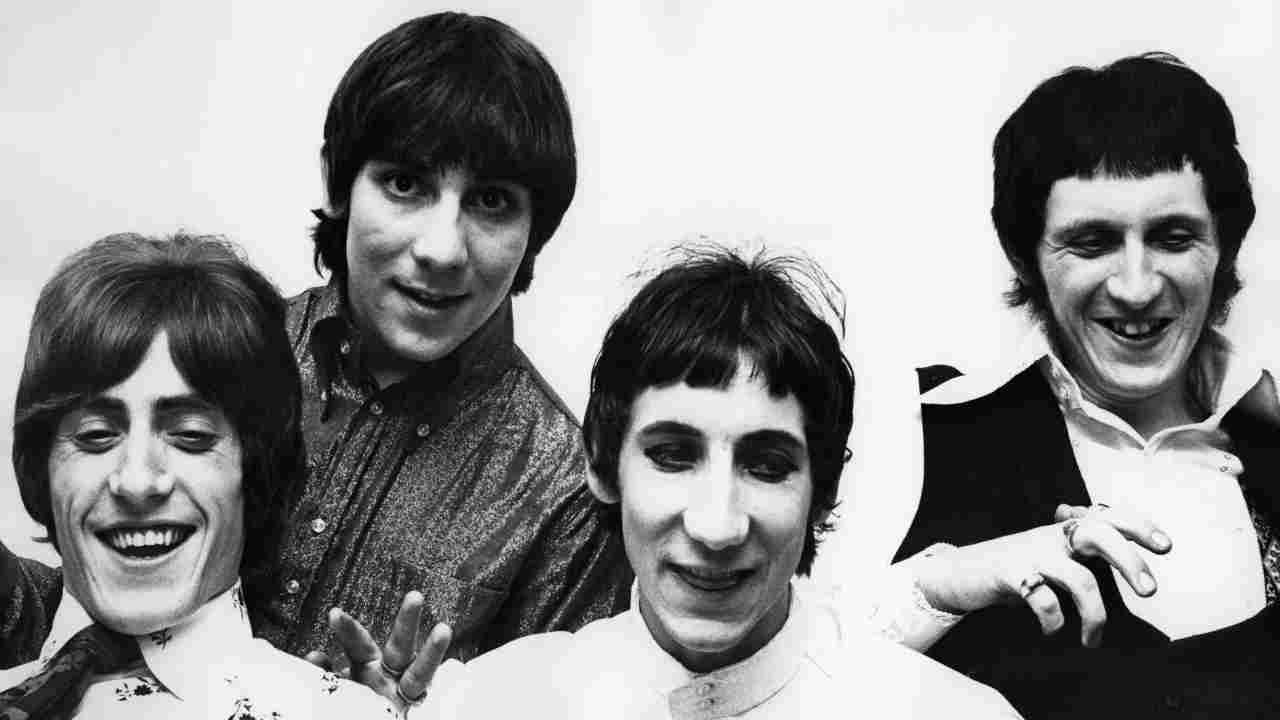Foreigner: Your Guide To The First Seven Albums
Guitarist Mick Jones looks back on the AOR giants' studio output from 1977 to 1991...
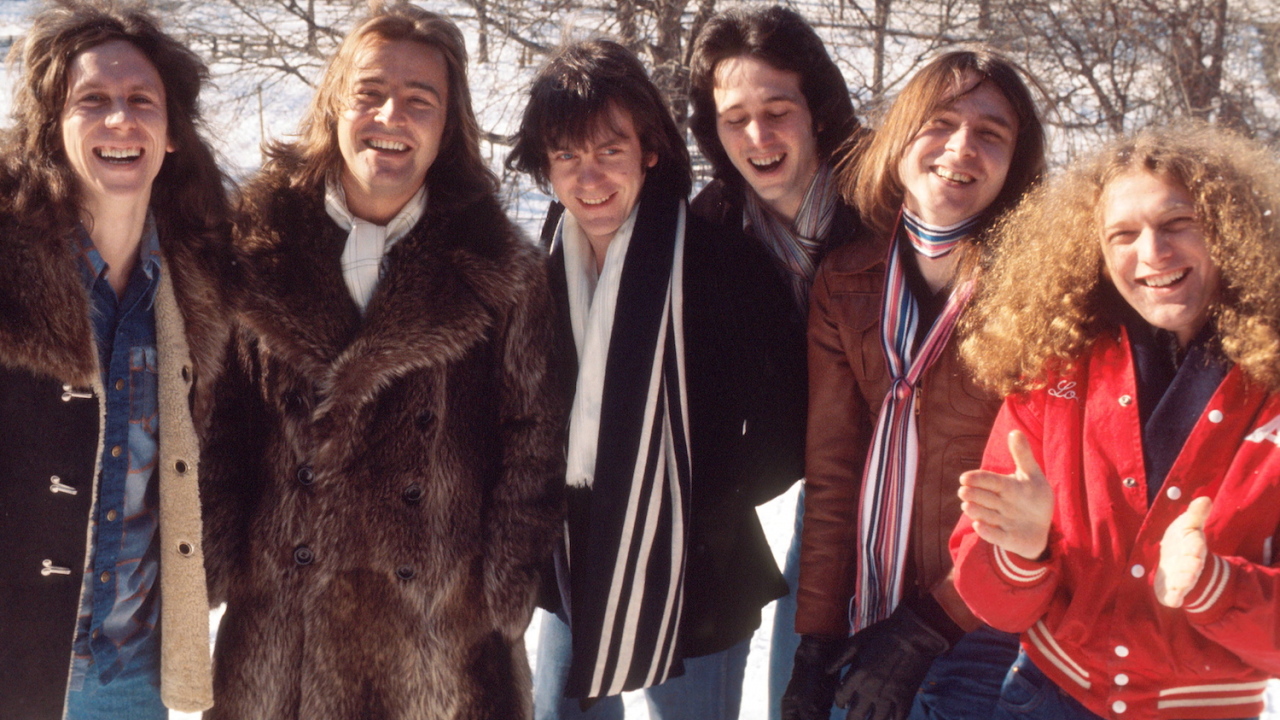
For a band who are often regarded as no more than a hit machine with little personality, the Foreigner story is remarkably packed with incident. They were formed against the unappealing backdrop of punk and disco, when the sort of melodic rock they were trying to germinate was seen as having no contemporary value. There were dramatic line-up changes, studio arguments and a constant fight against a media who felt Foreigner offered nothing to the musical heritage of the era. But over a series of seven studio albums between 1977 and 1991, the band achieved remarkable success. The first five of these all made the Top Five in America, as Foreigner unleashed some of the most memorable tunes of the time, songs which have since proved to be timeless. These are still being heavily played across the world and are part of the fabric of AOR.
Moreover, the band are still a force to be reckoned with, on the live front. Only founder-guitarist Mick Jones now remains from the glory years. But with a box set of those seven albums having just been released – and in celebration of their track I Want To Know What Love Is topping the UK singles charts 30 years ago today –Jones looks back at the work, agitation and inspiration which went into each of them…
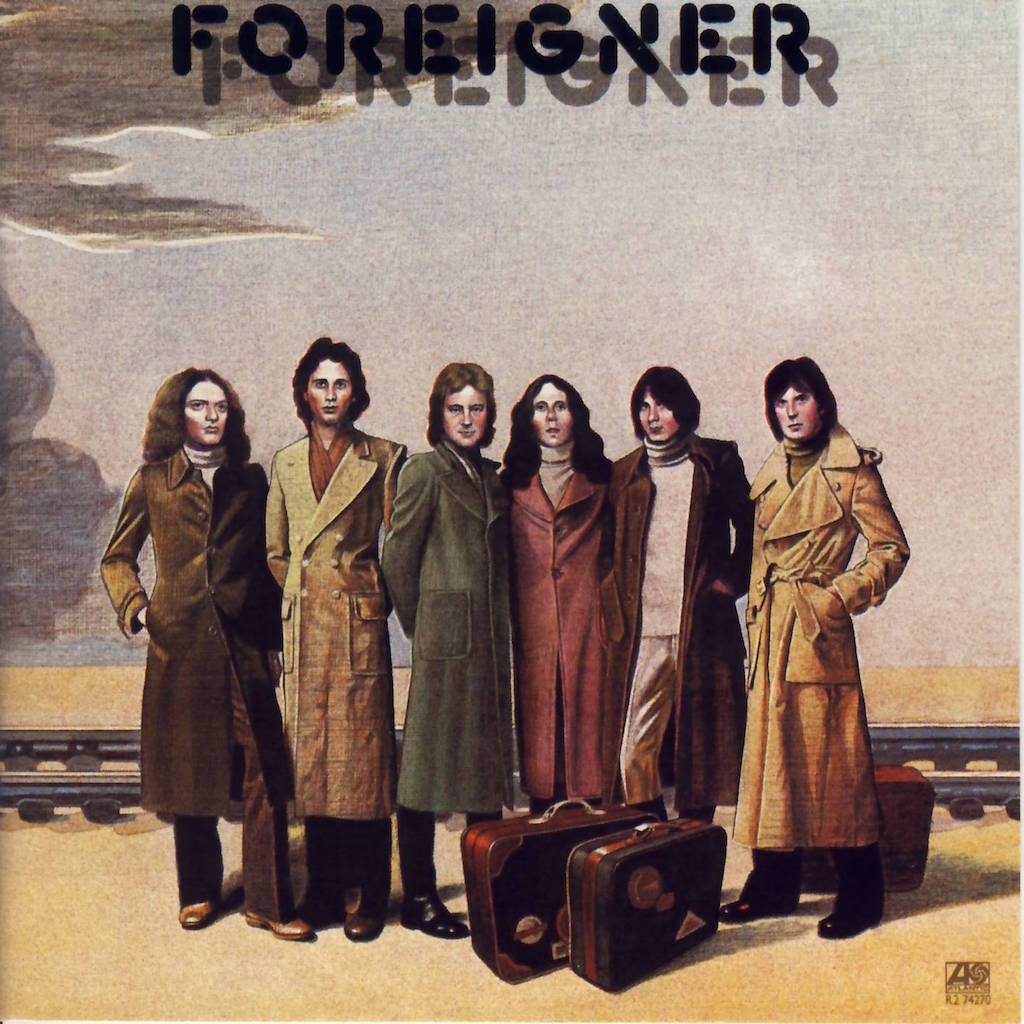
FOREIGNER, 1977
“Well, it was a game changer for everyone, wasn’t it? I remember that, at the time, I was living in New York City and I didn’t know what I was gonna do. There was even the possibility I would have to get a proper job.
“Everything was against my sort of melodic rock music. It was the dawn of punk, and disco was riding high. Nobody seemed to care about the type of music I wanted to make. But the desperation of the situation pushed me into writing by myself for the first time in my career; previously, I had only ever co-written. And Feels Like The First Time was the first song I did.
“Slowly, I put together a band, and got on with the writing process. And from early on, there just seemed to be something special about what we were doing. I was testing myself like never before. I had a vision for what we should be doing and it happened.
“I remember taking home a test pressing of the album when we’d finished it, putting it on the stereo, lying back and closing my eyes. And it was as if I had an out of body experience. I knew it was the best thing I had ever recorded, and truly believed we had done something that could do well. But we had no idea it would be as big as it became. The album just took off, and that was despite the fact we were getting a lot of negative reaction form the media everywhere. They didn’t like us at all, but we were doing enough right to make this a big seller.
Sign up below to get the latest from Classic Rock, plus exclusive special offers, direct to your inbox!
“We were getting criticised at the time for supposedly being manufactured. We were being called the band put together in the Atlantic Records board room, which was an allusion to the fact that some people thought we were just peddling corporate rock, whatever that is. If they had known about the struggles we had getting the line-up secured and then to make then album, then perhaps they’d have had a higher opinion of us.
“If you want to know what sold Foreigner to people, then it’s simple: we had very good songs and they were played extremely well by highly talented musicians. No gimmick, no tricks.”
JONES’ SONG PICK: “I would have to go for Feels Like The First Time. Because that was the engine driving the whole train forward.”
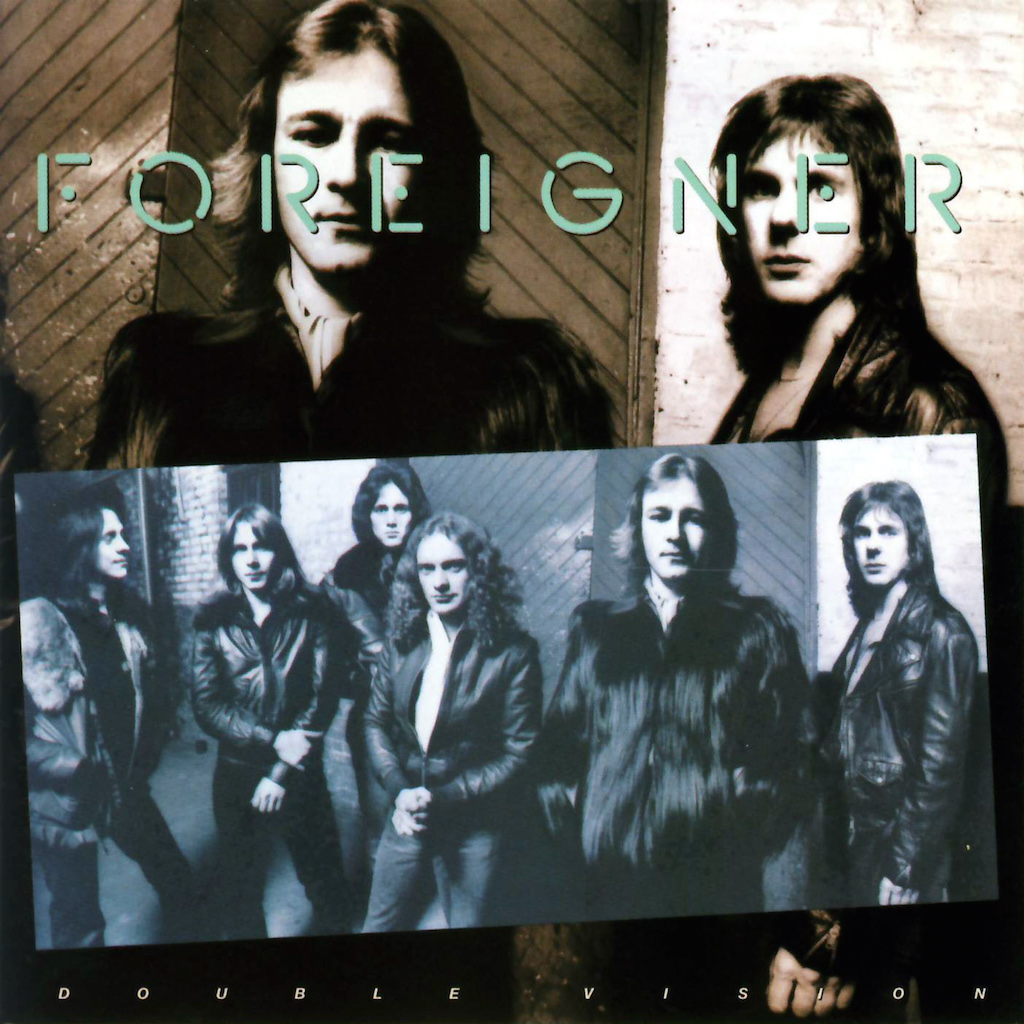
DOUBLE VISION, 1978
“Oh, the dreaded sophomore moment. In America, there was this axiom that if you had a huge debut album, as we had done, then the next one would die. You’re merely a flash in the pan who disappears – goodbye! We knew we were facing this challenge. And this was especially true, because despite the success of that debut we were still unsure of ourselves, or where we were headed.
“Punk and new wave were hogging the headlines. Now, I actually liked a lot of that type of music, but it made no difference. We were slagged off by the press and the punks. But I know behind the scenes it was a different story. Someone like Johnny Rotten liked Foreigner in private. And there was one major American writer, a so-called taste maker, who hammered us constantly in print, but apparently loved playing air guitar at parties to… Hot Blooded!
“We weren’t cool or hip at the time, but that never bothered us. And the odd thing was that, by the time Double Vision came out we were seen as being on the same level as the Stones. They’d never had a million selling album on Atlantic, but they released Some Girls about the same time as we put out Double Vision. And we ended up outselling them – it was wild. In fact, we did better both in terms of chart position and actual sales on our second album than we had on the first. We knew what we wanted to sound like by now. It wasn’t a case of following a formula, but we had a strong idea of what worked for us in the studio. And the same principles applied. All that mattered to us was to get the songs written to the highest standard and then to ensure they came to life in the studio. We weren’t a band with a crazy singer or a glam image. Sorry, but what sold us to the fans was all in the grooves.
“By now, we were a big band, because Double Vision proved we could repeat success. And yet do it on our own terms.”
JONES’ SONG PICK: “I’d go for a song I didn’t write. Love Has Taken Its Toll was co-written by Lou Gramm and Ian McDonald. It was nice to be able to listen to what someone else could come up with, and for me it’s a great representation of the album.”
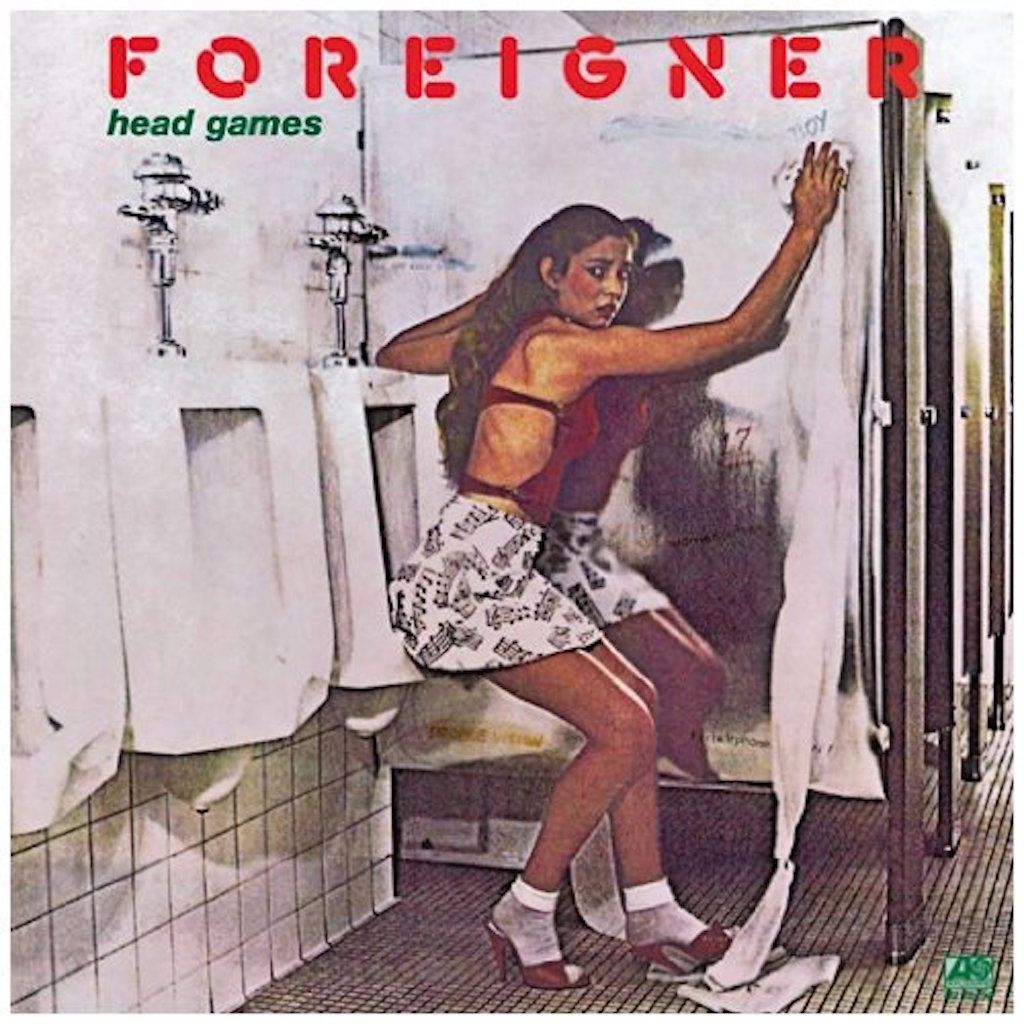
HEAD GAMES, 1979
“The first thing everyone remarks about when it comes to this album is the cover. The girl scribbling graffiti on a wall above a men’s urinal! Oh, did that cause us problems. There was outrage about it in some parts of the American mid-west, and some stores refused to stock the album, because of that sleeve. And people say we always played safe!
“I feel that what we were going for on Head Games was a tougher approach. You can hear it on something like Dirty White Boy, which has a real street streak. And for me the song _Head Games _itself was following on from Feels Like The First Time, in the way we thought it through.
“I got in Roy Thomas Baker to co-produce the album with me and Ian McDonald. We’d actually wanted him for the first album, but at the time he was busy with Queen, so wasn’t available. And ‘Mutt’ Lange also expressed an interest in doing Head Games. Now, I had a lot of time for him, and liked the way he seemed to work. But I also felt this wasn’t the right occasion to get him in, and of course he did come on board for our next album.
“This was the last album we did with the original line-up. Well, apart from Ed Gagliardi on bass, he was replaced by Rick Wills. The problem was that I let a lot of outside pressures get to me, and some of the band now were enjoying the trappings of success. They were doing drugs, drinking a lot to offset the drugs, and then doing more drugs. In a way, when we finished recording Head Games it did feel like we’d reached the end of an era. But that’s no reflection on the quality of the album. I still feel it came out very well, and was certainly a big seller. Again, we got the balance right between all the different things we could do, from rockers to softer moments. And I was still challenging myself, although I was reaching the stage where I believed something had to change, to freshen up the band. And that was about to happen.”
JONES’ SONG PICK: “It would be Blinded By Science, which showed a different side to Foreigner.”
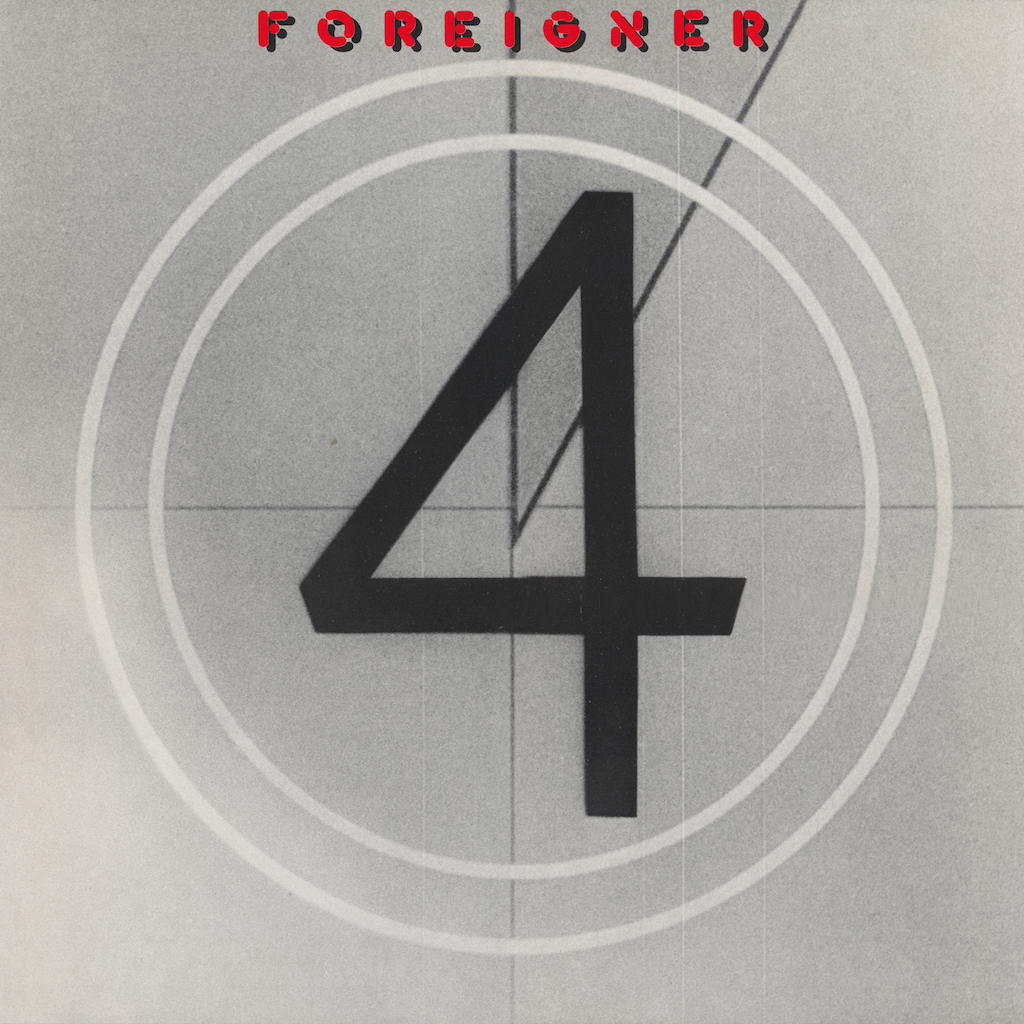
4, 1981
“I suppose for most people, this is our iconic album. And there was definitely a magic about what we did. It was a special period in our history.
“To be honest, I think we’d lost focus as a band after Head Games. And with all the problems I mentioned earlier, it was time to change things. So, we streamlined the line-up down to a four-piece, which worked a lot better.
“But the really big decision was to bring in ‘Mutt’ Lange as the co-producer. We got him at the right time. For me, he was at his peak when he came in for our fourth album. And he was perfect for what I needed. He challenged everything, and I wanted someone with me in the studio who’d do just that. Not merely accept anything that was thrown at him. He made us all think about every little thing we did, which improved us no end.
“Naturally, there was some headbutting going on between him and me. We had a lot of arguments, especially when we were putting the songs together. But that meant we were really prepared for what lay ahead in the studio. I don’t think we had ever been better focused than we were for this album. The atmosphere when we were recording was amazing.
“I always felt this should be the crowning glory of Foreigner’s career, and that’s the way it turned out. So much came together almost by good fortune. For instance, getting Junior Walker to play saxophone on Urgent. I just noticed he was playing a gig in New York, and got the idea he’d be perfect to guest on the track. So, I went down to the venue, and after watching him do two sets, went backstage to talk to him… only to discover he’d never heard of Foreigner! But thankfully, his son knew who we were and persuaded him to do the slot. It was the first time Junior Walker had ever played one someone else’s album by overdubbing.
“And then we had Thomas Dolby come in to play synthesisers. He was kinda crazy, but in a positive way.
“With 4, I got the impression that people were finally taking us seriously. And it was a good reward for the fact that we had all pushed so hard in the studio. I was especially tough on everyone, because I wanted the best. Nothing less.”
JONES’ SONG PICK: “It has to be Urgent. Because it was slightly different to what we usually did. This was funky.”

AGENT PROVOCATEUR, 1984
“How do you follow an album as big as 4? It was certainly a hard act. We actually took a couple of years out before going back into the studio. And we needed that break. The band had been working intensely ever since we’d started, and it was all beginning to take its toll.
“On top of that, the relationship between Lou and myself was starting to get very strained. I think he was getting a little annoyed that we were being perceived as a ballad band. It was just bad timing that we’d put out Waiting For A Girl Like You as a single from 4, and then we followed this up with I Want To Know What Love Is, from Agent Provocateur. For some people that might have been enough to get us a kinda soft rock tag, but it wasn’t true at all. If you listen to this album, it’s a very balanced set of songs. We had some softer tunes, certainly, but we also had some great rocking moments. Listen to Tooth And Nail – now that’s a very tasty song, and underlines the fact we could still chug out the riffs as well as anyone.
“But Lou thought I was trying to push the band more towards the ballads, and to have keyboards right up at the front all the time. That was never my intention, but once he got this idea into his head, the situation between us got progressively worse. It wasn’t yet at breaking point, but was heading that way. Lou saw himself as a rock vocalist, and those are the sort of songs he felt we should emphasise.
“You can imagine that the atmosphere in the studio this time wasn’t too great. But despite all of that we did come up with a very good album. I Want To Know What Love Is was a huge hit, of course, and perhaps dominated the album’s perception. But I still believe Agent Provocateur is undervalued. Part of that is our fault.We did’t do enough to promote it. However, it was the only album we ever had get to number one in Britain, so that was a landmark of itself!”
JONES’ SONG PICK: “I do like That Was Yesterday. This was the second single from the album, and is a very emotional song.”

INSIDE INFORMATION, 1987
“By the time we got to this album, things between Lou and me were really at rock bottom. Because there was something of a break between this one and Agent Provocateur, Lou went out and put together his own band, recorded a solo album [Ready Or Not] and pretty much went out to do his version of what Foreigner should sound like.
“Meantime, I took advantage of the lull in the band’s activity to co-produce Van Halen’s 5150 album [alongside Donn Landee and Eddie Van Halen]. I learnt a lot from that experience. It was all a bit crazy.
“What happened was that Lou and I effectively had a long distance relationship by now. He had become the voice to sing the lyrics I was writing. That was the extent of his involvement, really. Whereas in the past we co-wrote a lot, this time there was little of this going on. Lou was somewhat removed from the whole creative process. I think he was definitely annoyed at the way we were being tagged as a ballad band, and he blamed me for this state of affairs. Well, that wasn’t the way I was thinking at all. If Lou had sat down and written with me, then maybe we could have avoided all of this. But, he wouldn’t do that, and it made the whole studio atmosphere somewhat sour.
“It led to me having long term personal problems Lou. Thankfully, that’s now all behind us, and it was very unfortunate for everyone connected with Foreigner.
“Inside Information could have been so much better if Lou and I had been able to resolve our differences. But, given the circumstances under which it was done, I think it came out OK. There are some good tracks here, and it’s only because I know how bad relations in the band had gotten by this point that I haven’t listened to this album for so long. But it didn’t do too badly, and still sold over a million copies in America. However, we all knew when the touring cycle was over that Lou wouldn’t be part of the band for the next album. We hoped it would be different, but reality suggested otherwise.”
JONES’ SONG PICK:
“I Don’t Want To Live Without You was a very personal song for me. It was about everything happening in my life at the time, and still gets to me.”

UNUSUAL HEAT, 1991
“The album we faced having to make without Lou. He had now decided it was time for him to go fully into a solo career, and it was a very difficult time for Foreigner.
“I did have serious thoughts about splitting up the band. And did wonder whether we could really replace Lou. Not many bands are able to get away with bringing in a new frontman, especially when the man they’re being asked to take over from has such a distinctive voice. But then I thought about what the other two guys in the band – drummer Dennis Elliott and bassist Rick Wills – would feel like if I told them the band was over. I owed it to them to keep Foreigner alive. So, that’s when I went gung ho to find the new guy.
“Now, I’d discovered Johnny Edwards while in bed with flu. I was listening to audition tapes of singers, came across his one, and knew immediately he was the right man for us. I suppose you could say that, due to us having Johnny instead of Lou, the chemistry wasn’t right on Unusual Heat. But that’s unfair. It was always going to take time for things to settle down again And if anyone gives this album a chance, then it does make sense. It’s a lot better than people at the time believed.
“I like a lot of want we did. A song like Lowdown And Dirty would have probably been well received on one of our earlier albums. You can’t blame Johnny for the fact the album didn’t sell well. He did his best. Whoever had come in would have faced equal problems. Should we have thought about changing the name of the band? No. It was still Foreigner, just with a new singer. To have done that would have given Lou far too much power, and the way things were between us back then, the last thing I wanted to do was make him bigger than the band. Yes, we sold less than half-a-million copies in the States, which was a real plummet. But the album deserves a chance. Listen to it with an open mind, and I think it will impress.”
JONES’ SONG PICK: “It has to be Mountain Of Love. Really strong.”
Foreigner’s The Complete Atlantic Studio Albums 1977-1991 is out now through Rhino.
Malcolm Dome had an illustrious and celebrated career which stretched back to working for Record Mirror magazine in the late 70s and Metal Fury in the early 80s before joining Kerrang! at its launch in 1981. His first book, Encyclopedia Metallica, published in 1981, may have been the inspiration for the name of a certain band formed that same year. Dome is also credited with inventing the term "thrash metal" while writing about the Anthrax song Metal Thrashing Mad in 1984. With the launch of Classic Rock magazine in 1998 he became involved with that title, sister magazine Metal Hammer, and was a contributor to Prog magazine since its inception in 2009. He died in 2021.

